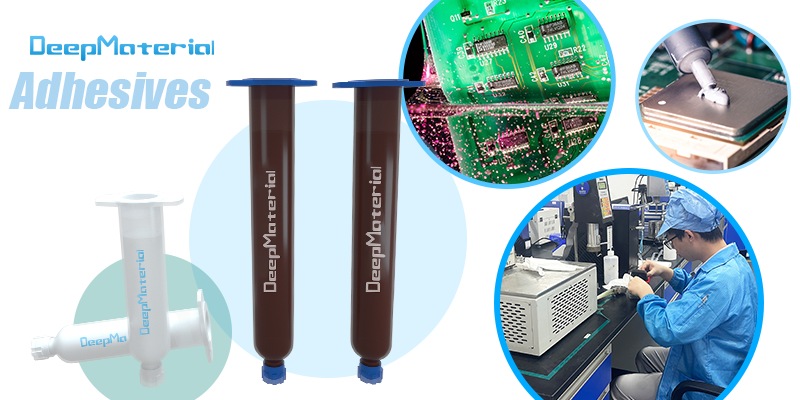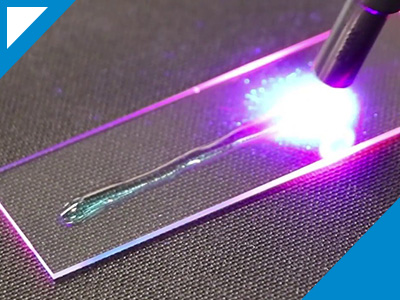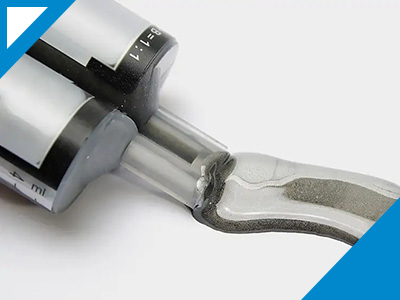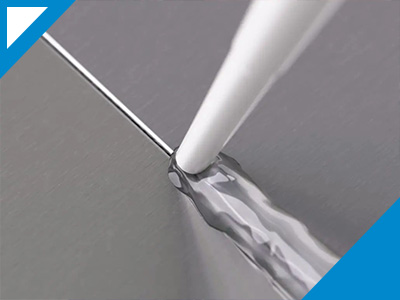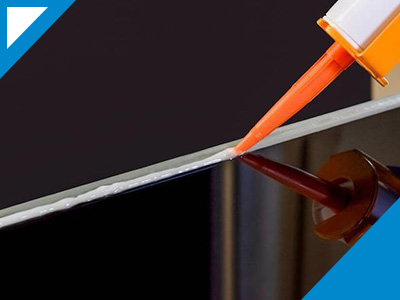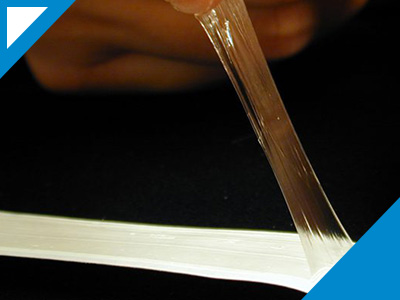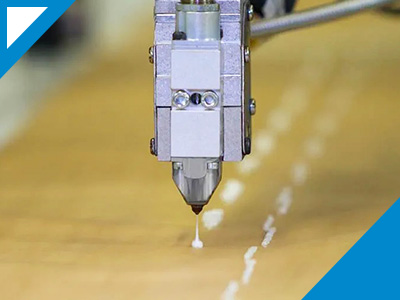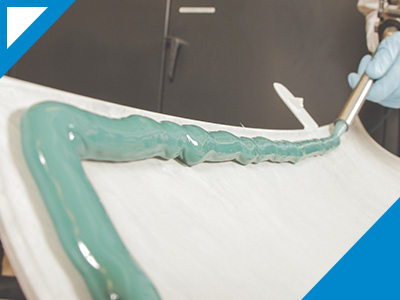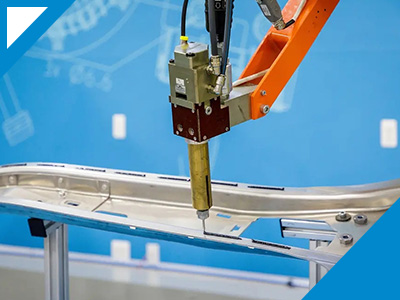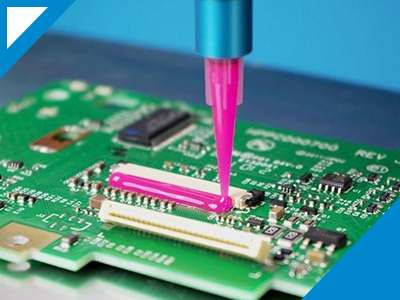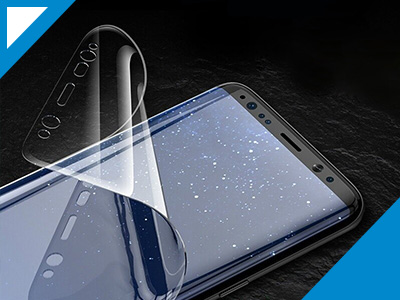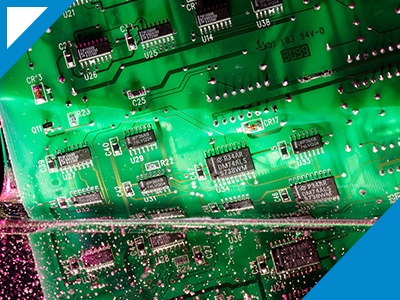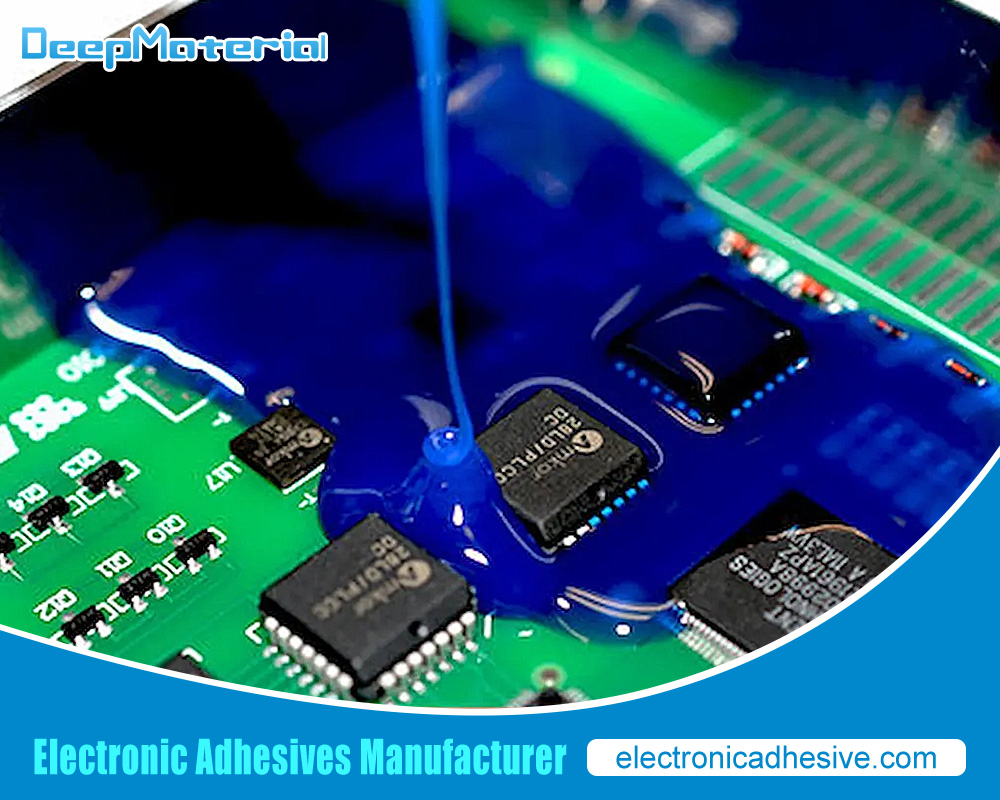Speaker Adhesive Glue

Speaker adhesive glue is an adhesive used to bond the various parts of a speaker together. It is a critical component of the speaker as it helps to hold the cone, voice coil, spider, and other speaker parts in place. The adhesive used in a speaker must be strong, durable, and heat-resistant, as speakers operate at high temperatures and are subject to significant stress during use.
What is Speaker Adhesive Glue?
Speaker adhesive glue is a specialized type of adhesive designed for use in constructing and repairing speakers. It is a type of glue that can withstand high temperatures, humidity, and vibrations, making it ideal for speaker assemblies. Speaker adhesive glue can be used for various purposes, including bonding speaker cones, voice coils, spider assemblies, and other speaker components. It is a crucial component in the construction and repair of speakers, as it ensures that the ingredients are securely held in place and helps to create a seamless, transparent, and high-quality sound output. This article will discuss the various types of speaker adhesive glue, how to choose the right one, and how to apply it properly to ensure the best results.
Why is Speaker Adhesive Glue Important?
Speaker adhesive glue is essential for several reasons, including:
- Provides a strong bond: Speaker adhesive glue forms a strong bond between surfaces, ensuring that the components of a speaker are securely fastened together.
- Improves sound quality: Using the proper adhesive glue can help reduce unwanted vibrations and resonance, improving good quality.
- Prevents damage: Speaker adhesive glue can help avoid damage to the speaker components by reducing movement and vibration, which can cause wear and tear over time.
- Increases lifespan:A suitable adhesive can help increase the lifespan of a speaker by ensuring that its components remain securely fastened together.
- Enhances performance:Properly applied adhesive glue can help improve the performance of a speaker by reducing unwanted noise and improving overall sound quality.
Speaker adhesive glue is essential in speaker construction, providing the necessary strength and stability to keep the components securely fastened together, resulting in better sound quality, increased lifespan, and improved overall performance.
Different Types of Speaker Adhesive Glue
Different types of speaker adhesive glue are available on the market, and each has unique properties and is suitable for specific applications. Here are some common types of speaker adhesive glue:
- Epoxy adhesive: This type of adhesive is popular for speaker repairs. It forms a strong bond, has excellent temperature and chemical resistance, and is highly durable.
- Polyurethane adhesiveis highly flexible and can withstand vibrations, making it ideal for speaker repairs.
- Cyanoacrylate adhesive: Also known as super glue, this adhesive is ideal for bonding small parts in speaker repairs.
- Silicone adhesive: This type is highly flexible and can withstand high temperatures, making it ideal for speaker repairs.
- Hot melt adhesive: This type of adhesive is commonly used in speaker assembly and is highly effective in creating a strong bond between different materials.
- Contact adhesive: This type is suitable for bonding large surfaces and is commonly used in speaker cabinet assembly.
Choosing the correct type of speaker adhesive glue is essential based on the specific application and the bonded materials.
How Speaker Adhesive Glue Works
Speaker adhesive glue creates a strong bond between two surfaces through a chemical reaction. Here are some key points about how speaker adhesive glue works:
- Characteristics of a Good Speaker Adhesive GlueSpeaker adhesive glue is typically a two-part adhesive consisting of a resin and a hardener. A chemical reaction occurs when these two parts are mixed, causing the mixture to harden and create a strong bond.
- The hardening process is typically initiated by adding heat, which can be applied using a heat gun or by simply allowing the mixture to cure at room temperature over several hours.
- The chemical reaction during the hardening process causes the adhesive to become cross-linked, creating a solid and durable bond between the two surfaces being joined.
- Some types of speaker adhesive glue may also contain fillers or other additives that help to improve their performance, such as by increasing their flexibility, resistance to impact or vibration, or ability to withstand high temperatures.
- When using speaker adhesive glue, following the manufacturer’s instructions carefully ensures the adhesive is applied and cured correctly. Failure to do so can result in a weaker bond or other issues with the performance of the adhesive.
Characteristics of a Good Speaker Adhesive Glue
A good speaker adhesive glue should have specific characteristics to ensure reliable and long-lasting bonds. Some of these characteristics include:
- Bond strength:A good speaker adhesive glue should have high bond strength to ensure a solid and durable bond.
- Flexibility:The adhesive should be able to flex and expand with the speaker cone, preventing the bond from cracking or breaking under stress.
- Vibration resistance:The adhesive should have good resistance to vibrations to ensure the bond remains intact, even under high sound pressure levels.
- Heat resistance:Speaker adhesive glue should withstand high temperatures without breaking down, ensuring the bond remains strong over time.
- Fast curing:The adhesive should have a brief time to ensure quick and efficient bonding.
- Waterproof:A good speaker adhesive glue should be waterproof, preventing moisture from weakening the bond.
- Chemical resistance:The adhesive should resist chemicals, preventing damage to the bond from exposure to solvents, cleaners, or other chemicals.
Overall, a good speaker adhesive glue should provide a robust and reliable bond that can withstand the rigors of long-term use in a speaker system.
Factors to Consider When Choosing Speaker Adhesive Glue
Choosing the right speaker adhesive glue is crucial to ensure the longevity and performance of your speaker system. Here are some factors to consider when selecting the appropriate adhesive glue:
- Bond strength: The adhesive’s bond strength should match the speaker components’ weight and size.
- Drying time: The adhesive’s drying time should check your project timeline.
- Temperature resistance:Consider the temperature range the speaker will operate in and select an adhesive that can withstand those conditions.
- Flexibility:The adhesive should be flexible enough to accommodate vibrations and movements of the speaker components.
- Chemical resistance:If your speaker is exposed to chemicals, choose an adhesive that is resistant to them.
- Application method: Some adhesives are more accessible to apply than others, so choose one that matches your skill level and tools.
- Compatibility:Ensure that the adhesive is compatible with the materials of the speaker components, such as paper, foam, plastic, or metal.
- Moisture resistance:Select a water-resistant adhesive if your speaker is exposed to moisture.
- Solvent-based vs. water-based: Consider the type of adhesive that best suits your needs, whether solvent-based or water-based.
- VOC emissions:If you are concerned about VOC emissions, select an adhesive that emits low levels of volatile organic compounds.
Speaker Adhesive Glue and Sound Quality
Speaker adhesive glue can affect the sound quality of a speaker. Here are some factors to consider:
- Over-application of adhesive can create a thick layer between the components, which may alter the sound quality.
- Improper mixing or application can cause air bubbles in the adhesive, affecting the sound quality.
- The type of adhesive used can also have an impact on sound quality. Some adhesives may absorb sound, while others may reflect it, altering the speaker’s performance.
- The placement of the adhesive on the speaker can also affect sound quality. For example, placing the adhesive too close to the edge of the speaker cone may create unwanted vibrations or distortion.
To minimize any negative impact on sound quality, it’s essential to follow proper application techniques and use the appropriate type of adhesive for the specific speaker components being bonded. Testing the speaker after adhesive application can also help identify any sound quality issues that must be addressed.
How to Apply Speaker Adhesive Glue
Remember several tips to ensure a solid and long-lasting bond when applying speaker adhesive glue. Here are some tips to consider:
- Clean the surfaces:Ensure that the characters to be bonded are clean, dry, and free of dirt, dust, or grease. Use a degreaser or rubbing alcohol to clean the surfaces.
- Roughen the surfaces:Roughening the surfaces can improve the bond strength. Use sandpaper or a wire brush to create a rough surface on the materials to be bonded.
- Apply adhesive evenly:Use a brush or spatula to apply the adhesive evenly to both surfaces. Ensure that the adhesive is spread out evenly without any air bubbles.
- Allow adequate curing time: Follow the manufacturer’s instructions for curing time. Avoid moving or disturbing the materials while the adhesive is curing.
- Apply pressure: Applying pressure to the bonded materials can help create a strong bond. Use clamps or other methods to apply pressure and keep the materials in place while the adhesive cures.
- Temperature control: Temperature can affect the adhesive’s curing time and bond strength. Ensure that the temperature is within the recommended range for the adhesive.
- Avoid excess adhesive:Use only the required amount to avoid excess buildup, weakening the bond and creating a mess.
- Clean up excess adhesive:Clean up any excess adhesive immediately using a solvent recommended by the manufacturer.
You can ensure a strong and long-lasting bond using speaker adhesive glue following these tips.

Common Mistakes to Avoid When Using Speaker Adhesive Glue
When using speaker adhesive glue, it’s essential to be aware of common mistakes that can compromise the strength and durability of the bond. Here are some errors to avoid:
- Properly preparing the surfaces for bonding can result in a strong bond.
- Using too little or too much adhesive can affect the strength of the bond.
- Allowing enough drying or curing time can lead to a strong bond.
- Applying the adhesive too close to the edge of the surface can cause it to ooze out and affect the appearance of the finished product.
- Not applying enough pressure during bonding can result in a weak bond.
- Using expired or improperly stored adhesive can affect its performance.
- Using the wrong type of adhesive for the materials being bonded can affect the strength of the bond.
- Not following the manufacturer’s instructions for mixing and applying the adhesive can result in a weak bond.
- Please wear proper safety gear to avoid injury when working with adhesive.
- Rushing and not doing the process right can lead to a strong bond and save time and materials.
Speaker Adhesive Glue and Speaker Repair
Speaker adhesive glue is an essential component in repairing speakers, and it has unique properties that make it an ideal choice for the job. Here are some of the ways speaker adhesive glue can be used for speaker repair:
- Cone repair: Speaker adhesive glue can be used to repair a damaged cone by applying a small amount of glue to the area and holding it in place until it dries.
- Voice coil repair:If the voice coil has become loose or detached, speaker adhesive glue can be used to reattach it. The adhesive is applied to the coil and the speaker frame, then left to dry for the recommended time.
- Dust cap repair: A torn or punctured dust cap can be repaired with speaker adhesive glue. The glue is applied to the torn area, then left to dry for the recommended time.
- Magnet repair: If the magnet has become loose or detached, speaker adhesive glue can be used to reattach it. The adhesive is applied to the interest and the speaker frame and left to dry for the recommended time.
- Surround repair:Speaker adhesive glue can be used to repair a damaged surround by applying a small amount of glue to the area and holding it in place until it dries.
Speaker adhesive glue is essential for repairing speakers and maintaining their sound quality. With its unique properties, it can ensure that the repair is long-lasting and effective.
Speaker Adhesive Glue vs. Other Types of Adhesives
Speaker adhesive glue is designed to bond various speaker parts, including cones, voice coils, and magnets. While there are many different types of adhesives available, speaker adhesive glue offers several advantages:
- Strength:Speaker adhesive glue has excellent adhesion and bonding strength, ensuring that the components of a speaker stay securely in place even when subjected to the vibrations and stresses of audio playback.
- Flexibility:Speaker adhesive glue is formulated to remain flexible even after it cures, allowing it to absorb vibrations and movement without cracking or breaking.
- Heat resistance: Many types of speaker adhesive glue are designed to withstand high temperatures, essential for speakers that generate a lot of heat during use.
- Chemical resistance:Speaker adhesive glue is typically resistant to chemicals and solvents, which can help protect the components of a speaker from damage.
- Sound quality: Speaker adhesive glue is designed to have minimal impact on the excellent quality of a speaker, ensuring that the audio remains clear and accurate.
Compared to other types of adhesives, such as super glue or epoxy, speaker adhesive glue is specifically formulated for the unique needs of speaker repair and construction. While different types of adhesives may work in some cases, they provide an additional bonding strength or flexibility than speaker adhesive glue, which can ultimately impact a speaker’s sound quality and durability.
Speaker Adhesive Glue and Water Resistance
Speaker adhesive glue is known for its strong adhesion and durability, but its water resistance can vary depending on the type and brand of the adhesive. Here are some things to keep in mind regarding water resistance:
- Some kinds of speaker adhesive glue are specifically formulated for water resistance, while others are not. It’s essential to check the label or product information before purchasing to ensure the adhesive meets your needs.
- Even if an adhesive is labeled as water-resistant, it may not be fully waterproof. Water-resistant adhesives are designed to withstand exposure to water to a certain extent, but they may eventually break down or lose their effectiveness if exposed to excessive moisture or submerged in water for long periods.
- The surface to which the adhesive is applied can also affect its water resistance. If the surface is not clean or has any sort of barrier, like paint or grease, it may compromise the bond and reduce the water resistance of the adhesive.
- It’s important to note that while water resistance is a desirable quality in many applications, it’s only sometimes necessary. Water resistance may not be significant if you use speaker adhesive glue for a non-water-resistant application, such as repairing an indoor speaker or mounting a non-waterproof speaker in a protected area.
Speaker Adhesive Glue and Temperature Resistance
Speaker adhesive glue is versatile and can withstand various temperatures, making it suitable for multiple applications. Here are some of the key points to keep in mind when it comes to temperature resistance:
- Speaker adhesive glue typically has a high-temperature resistance, which means it can withstand elevated temperatures without losing its adhesive properties.
- The temperature resistance of speaker adhesive glue may vary depending on the specific formulation and brand. It is essential to check the manufacturer’s specifications to ensure the adhesive is suitable for the intended temperature range.
- Speaker adhesive glue may also have a low-temperature resistance, which means it can remain adhesive even in cold environments. This property makes it ideal for automotive applications, where temperature changes are expected.
- When using speaker adhesive glue in high-temperature applications, it is vital to ensure it has fully cured before subjecting it to elevated temperatures. This will ensure the adhesive bond remains strong and does not break down over time.
Speaker Adhesive Glue and Chemical Resistance
Speaker adhesive glue is known for its high chemical resistance, making it a popular choice for bonding speaker components. Here are some of the key points to keep in mind regarding chemical resistance when working with speaker adhesive glue:
- Speaker adhesive glue is often formulated to withstand exposure to various chemicals, including solvents and cleaning agents commonly used in electronic equipment.
- The specific chemical resistance of a given speaker adhesive glue product can vary based on factors such as the formulation and the conditions it uses.
- Choosing a speaker adhesive glue product appropriate for the specific chemicals and environmental conditions to which it will be exposed is essential.
- When working with chemicals or other potentially hazardous materials, it is important to follow appropriate safety precautions and to ensure that the work area is adequately ventilated.
- It is also essential to carefully follow the manufacturer’s instructions for mixing and applying the speaker adhesive glue to ensure it can achieve the desired chemical resistance.
Speaker Adhesive Glue and Bond Strength
Speaker adhesive glue is an essential material for speaker repair or building, and its bond strength determines how well the adhesive can hold the components together. Here are some characteristics of speaker adhesive glue that contribute to bond strength:
- Viscosity: The adhesive should have a suitable consistency to ensure proper coverage and penetration between the surfaces to be bonded.
- Cure time:The adhesive should have a proper cure time that allows the glue to fully cure before the speaker is used.
- Cohesive strength:The strength of the adhesive itself is essential to ensure a strong bond.
- Adhesive strength:The adhesive should have high adhesive strength to ensure it adheres well to the surfaces being bonded.
- Gap-filling ability:The adhesive should have the ability to fill small gaps between the surfaces to be bonded, which can improve the bond strength.
Combining these characteristics determines the bond strength of speaker adhesive glue, making it an important consideration when choosing a suitable adhesive for speaker repair or building.
Speaker Adhesive Glue and Vibration Resistance
Speaker adhesive glue is designed to withstand the vibrations and movements of speakers without losing adhesion strength. Here are some bullet points highlighting the importance of vibration resistance in speaker adhesive glue:
- Speakers produce sound through the vibration of their components, which can stress the adhesive used to bond them.
- Vibration resistance is essential to ensure the speaker remains in one piece and maintains sound quality over time.
- A speaker adhesive glue with good vibration resistance will keep the bond intact even under the most strenuous conditions.
- When selecting a speaker adhesive glue, it is essential to consider the type of speaker it will be used for and the expected level of vibration it will endure.
- Look for a speaker adhesive glue designed for speakers with high vibration resistance.
Speaker Adhesive Glue and Aging Resistance
Speaker adhesive glue is an essential material for repairing and building speaker systems. When selecting a speaker adhesive glue, it’s crucial to consider the following characteristics:
- Aging resistance:A good speaker adhesive glue should resist aging over time, which will help ensure the longevity of the speaker system.
- Bond strength:Speaker adhesive glue should have strong bonding properties to ensure the speaker’s structural integrity.
- Chemical resistance:Speaker adhesive glue should resist chemicals such as solvents, oils, and acids, which can potentially damage the speaker system.
- Temperature resistance: Speaker adhesive glue should withstand a wide range of temperatures, from extreme heat to freezing cold.
- Vibration resistance: The speaker adhesive glue should have the ability to absorb vibrations without breaking down, which is especially important for speakers mounted in cars or other vehicles.
These factors are critical for ensuring the durability and longevity of the speaker system. It’s important to carefully evaluate different speaker adhesive glues before selecting the best one for your application.
Speaker Adhesive Glue and Gap Filling
Speaker adhesive glue can fill gaps in speaker components, which can help improve the speaker’s sound quality. Here are some key points to keep in mind when using speaker adhesive glue for gap filling:
- Choose an adhesive with good gap-filling properties to ensure the gap is filled correctly and the bond is strong.
- Make sure that the surfaces to be bonded are clean and free from any debris, oil, or grease, as this can affect the strength of the bond.
- Apply the adhesive in a thin, even layer to ensure it spreads evenly across the surface and fills any gaps.
- Be careful not to apply too much adhesive, as this can result in excess glue squeezing out of the hole and causing a mess.
- Allow the adhesive to dry and cure completely before using the speaker to ensure the bond is solid and secure.
Speaker Adhesive Glue and Flexibility
Speaker adhesive glue is a type of glue that is specifically designed to bond speaker components and can provide excellent flexibility. Here are some key points to consider about speaker adhesive glue and flexibility:
- Flexibility is essential in speaker adhesive glue because speaker components often undergo repeated vibrations, which can cause rigidity to fail and lead to cracks or breaks in the bond.
- Speaker adhesive glue is designed to provide a robust, flexible bond that can withstand these vibrations without breaking down over time.
- Flexibility also allows the adhesive to conform to the shape of the speaker components, providing a more even bond and helping to distribute stress more evenly across the bond.
- Some speaker adhesive glues may have a higher flexibility rating than others, so choosing an adhesive that matches the flexibility requirements of your specific speaker components is essential.
- In addition to flexibility, it’s also important to consider other factors such as bond strength, water resistance, and aging resistance when choosing a speaker adhesive glue.

Speaker Adhesive Glue and Durability
Speaker adhesive glue is an essential component in the manufacturing and repairing of speakers, and it is a particular type of glue designed to have specific properties that make it ideal for speaker construction and repair use. Here are some of the key characteristics of a good speaker adhesive glue that contribute to its durability:
- High bond strength: A good speaker adhesive glue should have a high bond strength that can withstand the vibration and stress that speakers are exposed to.
- Water resistance:Speaker adhesive glue should be water-resistant to prevent damage to the speakers in humid or wet environments.
- Temperature resistance:Speaker adhesive glue should withstand extreme temperatures without losing its bonding properties or degrading.
- Chemical resistance:The glue should resist damage from chemical exposure, such as contact with cleaning agents or solvents.
- Aging resistance:A good speaker adhesive glue should be able to maintain its properties and bond strength over time.
- Flexibility: Speaker adhesive glue should be flexible enough to accommodate any movement or changes in the speaker components without losing bonding properties.
- Gap filling:The glue should be able to fill gaps or irregularities in the speaker components, ensuring a solid and uniform bond.
- Vibration resistance:Speaker adhesive glue should be resistant to vibrations, preventing the speaker components from coming loose or separating over time.
- Durability:A good speaker adhesive glue should be durable, withstanding the wear and tear of regular use and handling.
Overall, the quality of the speaker adhesive glue used in speaker construction and repair is crucial to ensure the longevity and performance of the speakers.
Speaker Adhesive Glue and Cost
The cost of speaker adhesive glue can vary depending on the brand and the quantity you need. However, it is generally more expensive than other types of adhesives. Some factors that can affect the cost of speaker adhesive glue include:
- Brand: Some well-known brands may be more costly than generic or lesser-known brands.
- Quantity:Larger quantities of adhesive are usually cheaper per unit than smaller quantities.
- Type:Different types of speaker adhesive glue can have different prices depending on their properties and performance.
- Application:If you use the adhesive for a specific application, such as repairing a high-end speaker, you may need a more specialized and expensive adhesive.
While the cost of speaker adhesive glue can be higher than other adhesives, it is essential to use a high-quality adhesive to ensure your speakers’ best performance and longevity.
Speaker Adhesive Glue and Brands
Speaker adhesive glue is vital in repairing and building speakers, and several brands are available in the market. Here are some of the famous brands and their characteristics:
- 3M Speaker Repair Adhesive:This adhesive has high bonding strength and is ideal for repairing surround, spider, and other speaker components. It is easy to apply and dries quickly.
- Gorilla Super Glue Gel:This adhesive has excellent bonding strength and is ideal for bonding speaker cones, voice coils, and other components. It dries clear and is water-resistant.
- E6000 Industrial Strength Adhesive:This adhesive has excellent bonding strength and is ideal for bonding speaker components, including voice coils, cones, and spiders. It is water-resistant, heat-resistant, and dries clear.
- Loctite Super Glue Gel:This adhesive has a strong bonding strength and is ideal for bonding speaker components. It dries clear and is water-resistant.
- Aleene’s Original Tacky Glue:This adhesive has a strong bonding strength and is ideal for repairing foam surrounds and cones. It dries clear and is water-resistant.
When choosing a brand, consider the type of repair or application, bonding strength, drying time, water and heat resistance, and cost. Reading the instructions carefully and using the adhesive as directed is also essential.
Speaker Adhesive Glue and Safety Precautions
Regarding speaker adhesive glue, there are several safety precautions you should keep in mind to ensure that you use the product safely and effectively. Here are some key points to keep in mind:
- Choose a glue that is designed explicitly for speaker repair. Not all adhesives are created equal, and using the wrong type of glue can lead to a suboptimal repair or even damage to your speakers.
- Wear protective gear, such as gloves and safety goggles, when using speaker adhesive glue. This will help to prevent skin or eye irritation, which can occur if the bond comes into contact with your skin or eyes.
- Make sure that you work in a well-ventilated area. Many types of speaker adhesive glue contain strong chemicals that can be harmful if inhaled in large quantities. Work outdoors or in an area with good airflow.
- Follow the manufacturer’s instructions carefully. Different types of speaker adhesive glue may have other application methods or drying times, so be sure to read the instructions carefully before you begin.
- Use only the recommended amount of glue. Applying too much adhesive can lead to messy or ineffective repairs, while using too little may not provide a strong enough bond.
- Allow the glue to dry completely before testing or using your speakers. This may take several hours or even overnight, depending on the glue you use.
- By following these safety precautions, you can ensure that you use speaker adhesive glue safely and effectively and achieve the best possible repair results for your speakers.
Speaker Adhesive Glue and Health Hazards
Speaker adhesive glue is a powerful bonding agent that should be used carefully due to potential health hazards. Here are some health hazards that one should be aware of:
- Skin irritation:Speaker adhesive glue can cause skin irritation and even severe burns if it comes in contact with the skin. It is essential to wear gloves and protective clothing when handling the glue to avoid skin irritation.
- Eye irritation: The fumes from the adhesive glue can irritate the eyes, causing redness, watering, and burning sensations. It is essential to wear protective goggles when working with glue to avoid any eye irritation.
- Respiratory problems:Inhalation of the fumes from the adhesive glue can cause respiratory problems, including coughing, chest tightness, and shortness of breath. Working in a well-ventilated area and using a respirator mask is essential to avoid inhaling the fumes.
- Allergic reactions: Some individuals may be allergic to the chemicals in the adhesive glue, which can cause various symptoms, including rashes, hives, and difficulty breathing. It is essential to read the safety data sheet and follow the manufacturer’s instructions to avoid allergic reactions.
To minimize the risks associated with using speaker adhesive glue, it is essential to follow all safety precautions recommended by the manufacturer, including wearing protective clothing, working in a well-ventilated area, and using a respirator mask. In case of any skin or eye contact, it is essential to immediately flush the affected area with water and seek medical attention if necessary.
Speaker Adhesive Glue and Flammability
Speaker adhesive glue is typically not flammable, which is a crucial characteristic given its intended use in electronic devices. However, taking proper safety precautions when handling any adhesive is still essential. Some points to consider regarding speaker adhesive glue and flammability include the following:
- Always follow the manufacturer’s instructions for using and handling the adhesive.
- Keep the adhesive away from heat sources and open flames.
- Do not smoke or use other open flames in the area where the adhesive is used.
- Store the adhesive in a cool, dry place away from heat and direct sunlight.
- Keep the adhesive away from other chemicals or substances that may pose a fire hazard.
- When using the adhesive, wear appropriate personal protective equipment, such as gloves and safety glasses.
- If the adhesive comes into contact with the skin or eyes, rinse the affected area immediately with water and seek medical attention if necessary.

Speaker Adhesive Glue and Storage
Proper storage is vital to maintaining its effectiveness in speaker adhesive glue. Here are some tips for storing speaker adhesive glue:
- Store speaker adhesive glue in a cool, dry place away from direct sunlight and heat sources.
- Ensure the lid is tightly closed to prevent moisture and air entering the container.
- Keep speaker adhesive glue out of reach of children and pets.
- Check the expiration date before using the glue. Expired glue may perform poorly or be less effective in bonding surfaces.
- If possible, store speaker adhesive glue in its original container to avoid contamination from other materials.
- If the glue has been stored for an extended period, check its consistency and effectiveness before use. If the glue has dried out or become too thick, it may also not work.
- Always follow the manufacturer’s instructions for storage and use of the specific brand of speaker adhesive glue.
Speaker Adhesive Glue and Shelf Life
Speaker adhesive glue typically has a shelf life of around 12 months to 2 years, depending on the brand and type of bond. Here are some factors that can affect the shelf life of speaker adhesive glue and tips on how to extend it:
- Temperature: Speaker adhesive glue should be stored in a cool, dry place to prevent deterioration. Extreme hot and cold temperatures can cause the bond to lose effectiveness and shorten its shelf life.
- Humidity: High humidity can also cause speaker adhesive glue to degrade and lose its bonding strength. Keeping the bond in a sealed container is crucial to prevent moisture from getting in.
- Exposure to air:When not used, speaker adhesive glue should be kept in a sealed container to prevent it from reacting with the air and curing prematurely.
- Brand and type: Different brands and types of speaker adhesive glue have different shelf lives, so it is essential to follow the manufacturer’s recommendations for storage and shelf life.
- Testing: If the glue has been stored for a long time, it is recommended to test its adhesion strength before using it for a speaker repair.
Overall, it is vital to store speaker adhesive glue properly and follow the manufacturer’s recommendations to ensure it maintains its effectiveness and shelf life.
Speaker Adhesive Glue and Availability
Speaker adhesive glue is a specialized adhesive designed for speaker repair and construction. It can be found in many stores, including hardware stores, electronics stores, and online retailers. Some of the factors to consider when choosing where to purchase speaker adhesive glue include the following:
- Local availability:Depending on your location, you may have different options for where to purchase speaker adhesive glue. Check with local hardware stores, electronics stores, and other retailers to see if they carry the brand you are looking for.
- Online availability:Many retailers, including Amazon and eBay, sell speaker adhesive glue. This can be a convenient option if you cannot still looking for the product locally or prefer to shop online.
- Brand availability: Not all speaker adhesive glue brands are available at all retailers. If you have a specific brand in mind, check with the manufacturer or retailer to see where it is available.
- Price: Speaker adhesive glue can vary in price depending on the brand and the retailer. Be sure to compare prices to find the best deal.
- Shipping options: If purchasing online, check the shipping options and costs. Some retailers may offer free shipping, while others may have additional fees.
Overall, speaker adhesive glue is a specialized product, but it is readily available at many retailers in-store and online.
Speaker Adhesive Glue and Online Shopping
Speaker adhesive glue is a specialized product that may only be readily available in some brick-and-mortar stores. However, it can be easily found online through various shopping platforms. When shopping for speaker adhesive glue online, there are a few things to keep in mind:
- Choose a reputable seller: Make sure to buy from a reliable seller with a good track record of selling quality products and delivering on time.
- Read product reviews: Before purchasing, review product reviews from other customers to see their experiences with the adhesive glue.
- Check for authenticity: Make sure that the product is a genuine brand, not fake or counterfeit.
- Compare prices: Shop around and compare prices to ensure you get a fair deal.
- Consider shipping costs and delivery time: Factor in shipping costs and delivery time when making a purchase decision.
- Check the return policy: Ensure the seller has a clear return policy if the product is defective or does not meet your expectations.
Speaker Adhesive Glue and Customer Reviews
When it comes to purchasing speaker adhesive glue, reading customer reviews can be a helpful way to make an informed decision. Here are some key points to keep in mind when looking at customer reviews:
- Consider the overall rating and number of reviews for a particular product. A product with a high rating and many reviews is more likely to be reliable than one with only a few ratings.
- Look for reviews that specifically mention the intended use for the glue (e.g., speaker repair or construction) to get an idea of how well it works for that purpose.
- Pay attention to any comments about the strength of the bond or how well the glue holds up over time.
- Take note of any negative reviews or common complaints about a product, as these can indicate potential issues to be aware of.
- Be mindful of fake or misleading reviews, which can be difficult to spot but may include overly positive or overly negative comments that seem suspiciously similar in tone.
Speaker Adhesive Glue and Warranty
Speaker adhesive glue is a crucial component in repairing and maintaining speakers. It is essential to consider the warranty provided by the glue manufacturer to ensure its effectiveness and durability. Here are some bullet points to consider regarding security:
- Check the warranty period provided by the manufacturer of the adhesive glue.
- Read the terms and conditions of the warranty thoroughly.
- Understand the limitations of the warranty, such as damages caused by improper application or storage.
- Find out if the warranty covers the cost of repairing or replacing the speaker in case of adhesive failure.
- Check if the warranty provides additional benefits, such as customer support or technical assistance.
- Keep the original receipt and any other relevant documents for potential warranty claims.
- Consider the reputation of the manufacturer and their commitment to quality and customer satisfaction.
- Look for reviews from other users with experience with the warranty and the manufacturer’s customer service.
Speaker Adhesive Glue and Customer Support.
Speaker adhesive glue is an essential component when it comes to repairing speakers, and it is crucial to have reliable customer support in case of any issues. Here are some bullet points on the importance of customer support when dealing with speaker adhesive glue:
- Good customer support ensures that all queries and concerns are addressed promptly, which can help prevent delays and ensure a smooth repair process.
- A knowledgeable customer support team can guide which type of adhesive glue suits specific repair needs, saving customers time and money in the long run.
- Customer support can also provide information on the application process and tips on avoiding common mistakes when using speaker adhesive glue.
- In case of any defects or issues with the product, customer support can provide assistance with the warranty process or help resolve the problem with a replacement or refund.
- Reliable customer support is essential when choosing where to purchase speaker adhesive glue, as it ensures that customers can access the necessary assistance and resources throughout the repair process.
In conclusion, adhesive glue plays a crucial role in meeting the needs of customers across various industries. It offers a reliable and long-lasting bonding solution for a wide range of materials. Therefore, manufacturers and suppliers must prioritize product quality, durability, and customer satisfaction to ensure continued success in the market.


